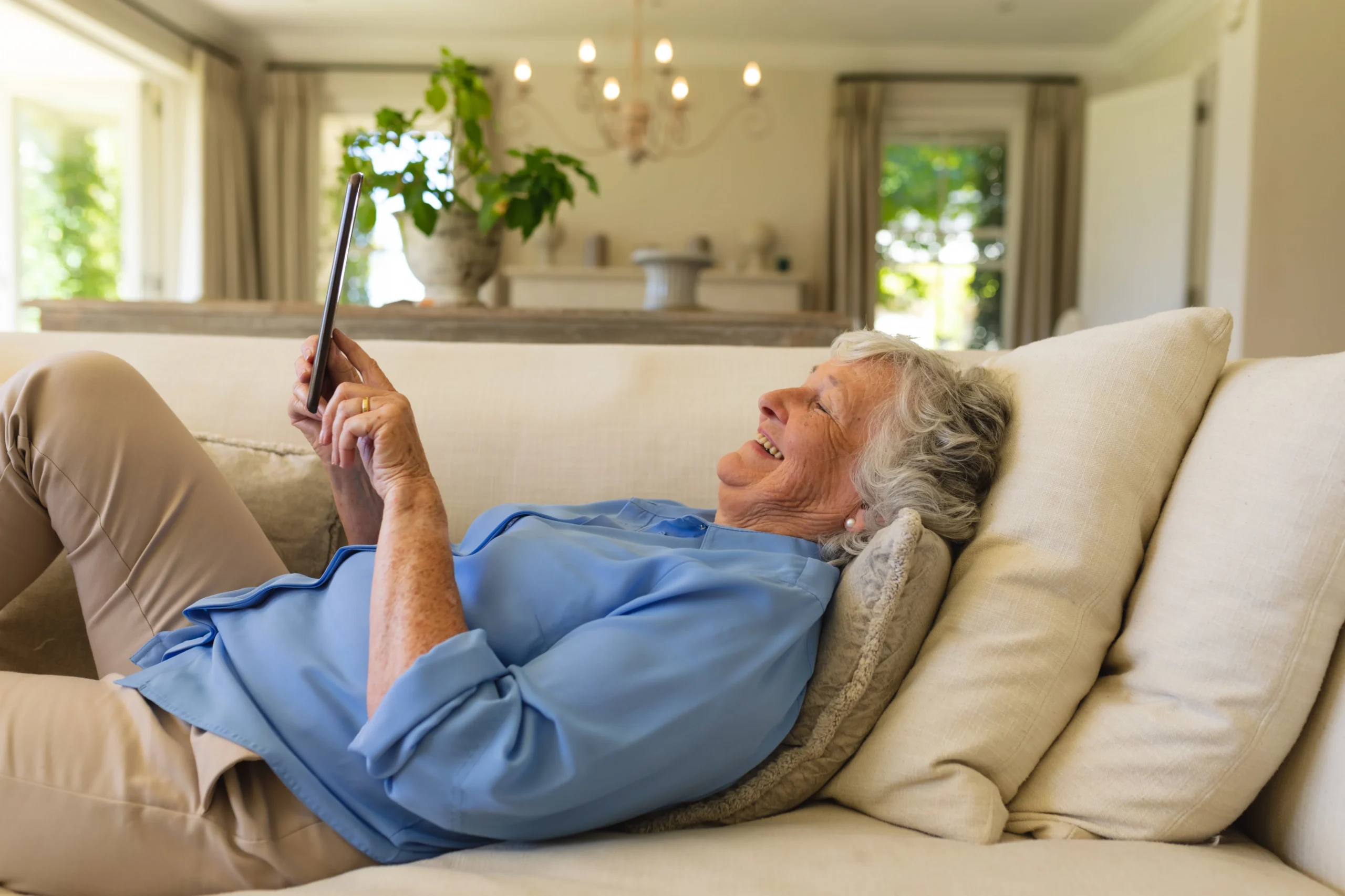Smart Home Technology for Senior Independence

Home care providers prioritize senior independence. They want to see their aging clients successfully navigate home and exterior environments so they can achieve higher levels of well-being with less oversight. Smart home technology is a useful tool in this process.
Smart home technology can be integrated in various aspects of senior life to enhance safety, aid with fall prevention, monitor health, and support aging-in-place. This article will review the many ways it can be integrated into a home setting.
What Types of Smart Home Technology Can Enhance Independence?
Various types of technology can help elderly individuals become more independent. Here are some to consider.
Wearable Devices
These devices are equipped with sensors that can monitor vitals, sending information to doctors and caregivers in a remote setting, so they can react if anomalies are detected. They also provide seniors with more insight about their health, so they can take charge and make more informed decisions.
Security Cameras
Security cameras keep homes safer, preventing break-ins and discouraging thieves who often target seniors. The footage can be shared with local law enforcement and friends and relatives who can also determine if a loved one has fallen or had another type of emergency incident. Emergency response teams can be called to the property if necessary.
Smart-Home Systems
These systems can be helpful for people with limited mobility. Systems with automation features can be set to turn heat and lighting on and off at specific times, preventing the senior from constantly needing to get up and make adjustments. Some can even work with voice automation, allowing seniors to turn systems on and off as they please, without needing to move around.
Medication Management
Seniors often forget to take their medication, but technology can provide valuable reminders to prevent missed doses. For example, medical providers can devise a system to send texts and emails when a dose is due.
Smart pill dispensers are another option. They provide visual alerts when a dose is needed, automatically dispense the correct dose, and may even connect with caregivers and doctors. They act as trackers of medication use and allow updates to dose amounts.
Prestige Home Care Provides a Human Touch
Prestige recognizes the benefits of smart home technology, but we also understand the need for a human touch. We offer device monitoring and can respond immediately if health hazards are detected. Our team also provides companionship care, a service no machine can replace.
Contact us to learn more about how our home care assistants can help you achieve a high quality of life.
FAQs
What are the challenges of implementing smart home technologies for the elderly?
The most commonly cited barrier is usability. Many seniors say their devices are difficult to use, obtrusive, intrusive, and don’t integrate well with other household automation systems.
What are the cost implications of installing smart home technology?
The cost of installing smart home technology varies depending on the complexity and number of devices you choose. Basic setups are typically more affordable than more advanced ones. You can save money by doing comparison shopping, looking for deals, and considering long-term savings such as reduced energy bills.
Can smart home technology be customized for individual needs?
Yes, it is possible to customize smart home solutions for individual needs. For example, wearable trackers can adjust to monitor specific vitals according to the person’s medical conditions. Medication reminder technology will provide doses that align with the patient’s medication schedule and dosage recommendations.
How can family members support seniors in adopting smart home technology?
Family members can help seniors adapt to smart home technology by scheduling time to help their loved ones set up devices and learn how to use them. They can also provide ongoing support if seniors encounter problems using new technology.
